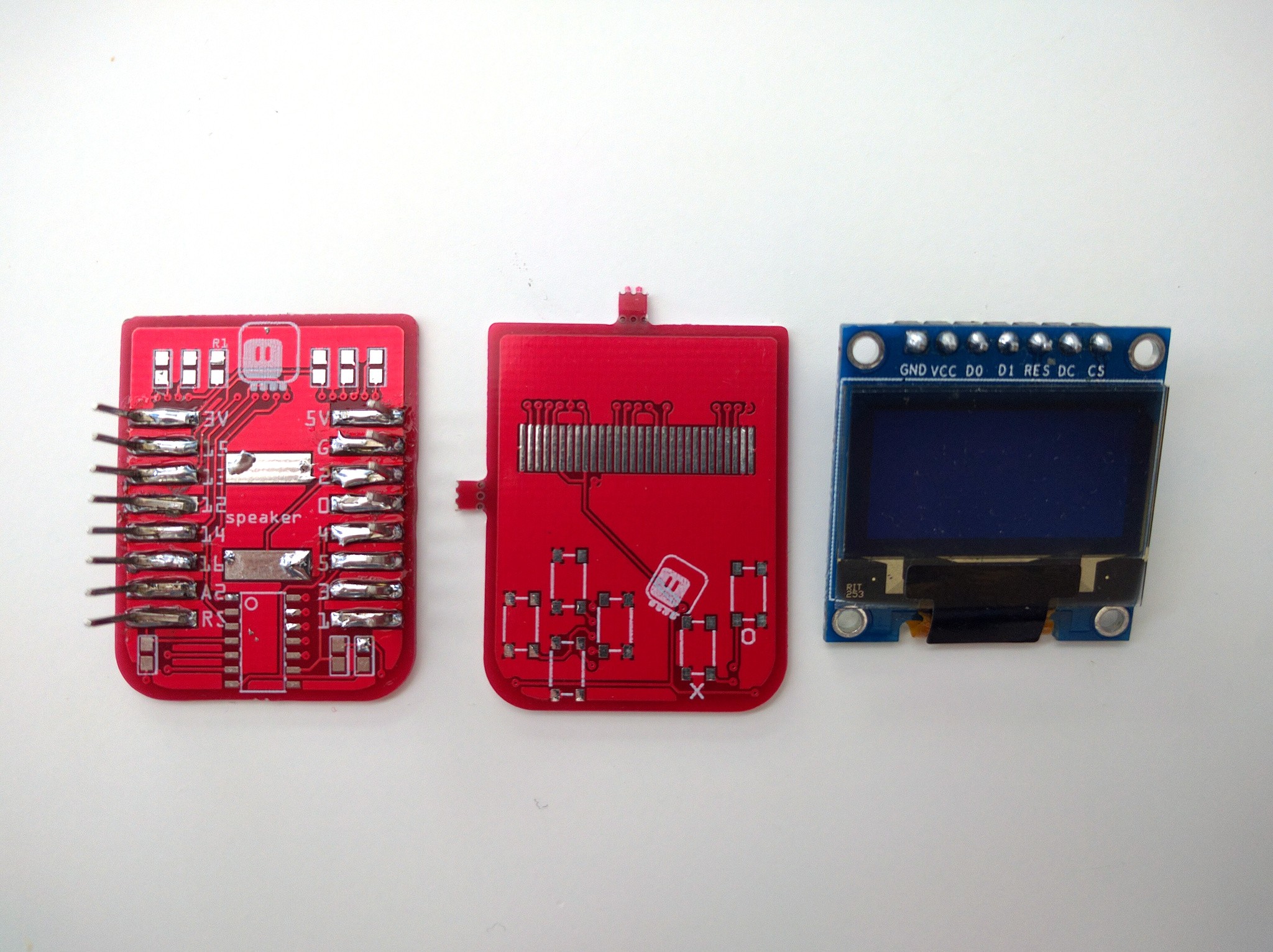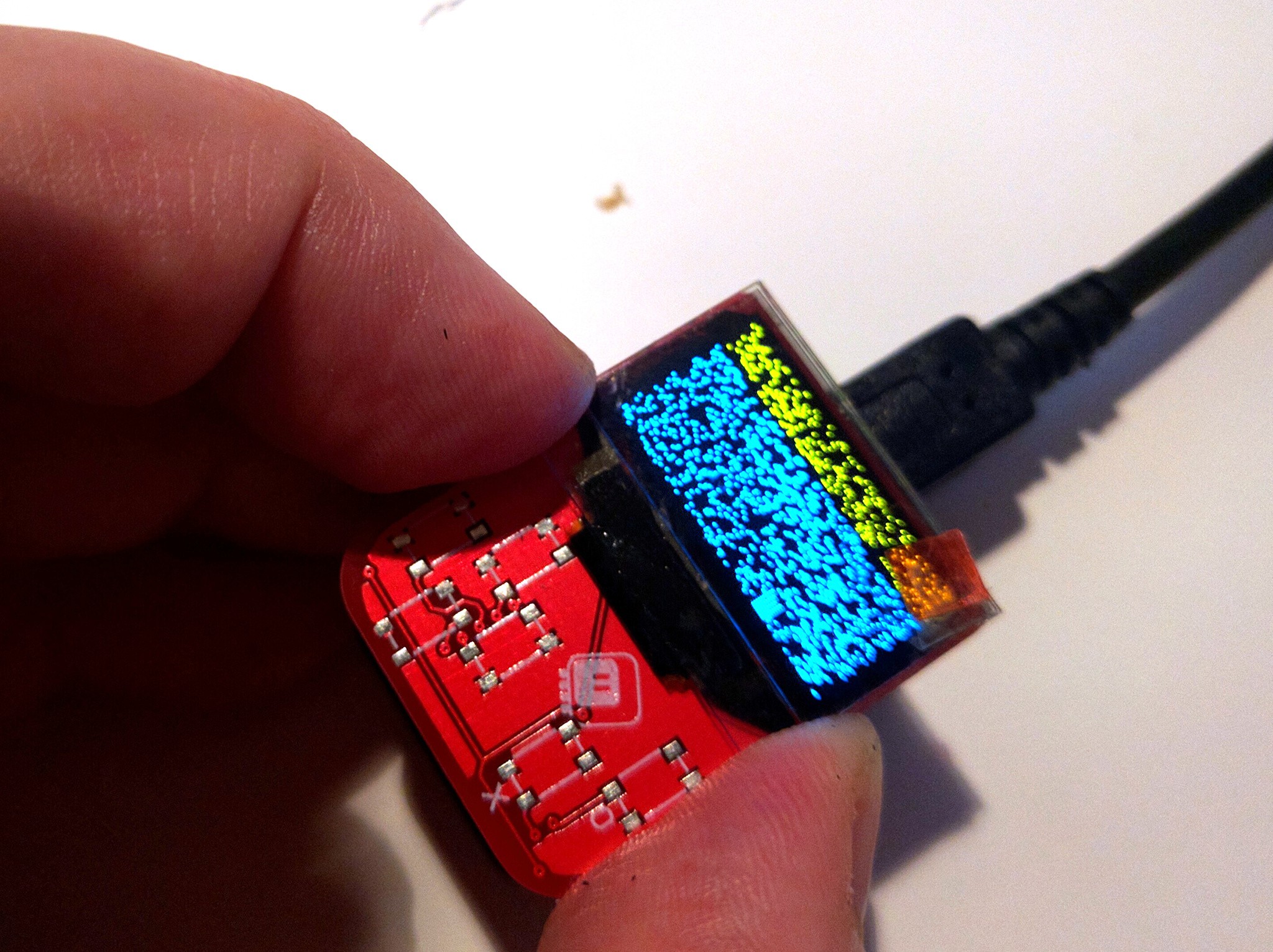Assembly¶
Published on 2019-06-08 in D1 Mini UI Shield.
A few weeks later, and the PCBs have arrived. Unfortunately they weren’t matte-black, as I originally ordered from @Elecrow , because I have panelized them, and apparently that is not allowed with matter-black — but they had no problems when I asked to change the color to red.
I tested how the angled headers as SMD pin headers work, and that was reasonably good:

(I included a module with a 0.96” display that I’m going to use here, for scale.)
The second attempt actually went much smoother, and I have a good technique of soldering them without too much work now, so I consider that experiment a success.
Next, I programmed an attiny24, soldered it in place, soldered all the passives, and added a display that, for now, I just desoldered from some module (I have proper, white, displays on order). A quick MicroPython script to test the display:
import machine
spi = machine.SPI(1, baudrate=1000000)
cs = machine.Pin(15, machine.Pin.OUT, value=1)
dc = machine.Pin(12, machine.Pin.OUT, value=0)
def write(data, command=True):
cs(0)
dc(not command)
spi.write(data)
cs(1)
write(
b'\xAE' # display enable = off
b'\x8D\x14' # charge pump = enable
b'\xAF' # display enable = on
b'\x20\x02' # address mode = page
b'\xB7' # page = 7
b'\x00x\x12' # column = 32
)
write(
b'\xFF\x0F\xFF\x0F\xff\x0f\xff',
False
)
and several hours to fiddling with the passives and connections, until I figured out that the flex cable in the display I have is broken and only works in a certain position:

But at least I confirmed that the display is working.
I’m still waiting for the buttons to arrive — it’s been two months already, since I ordered them for PewPew M4 — but I hope they will arrive Really Soon Now™.
 deshipu.art
deshipu.art